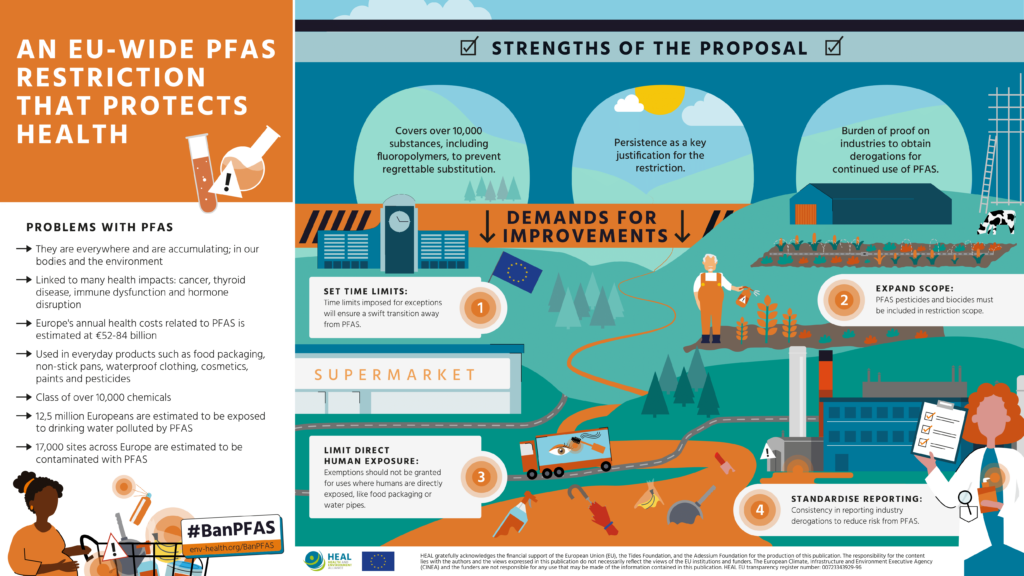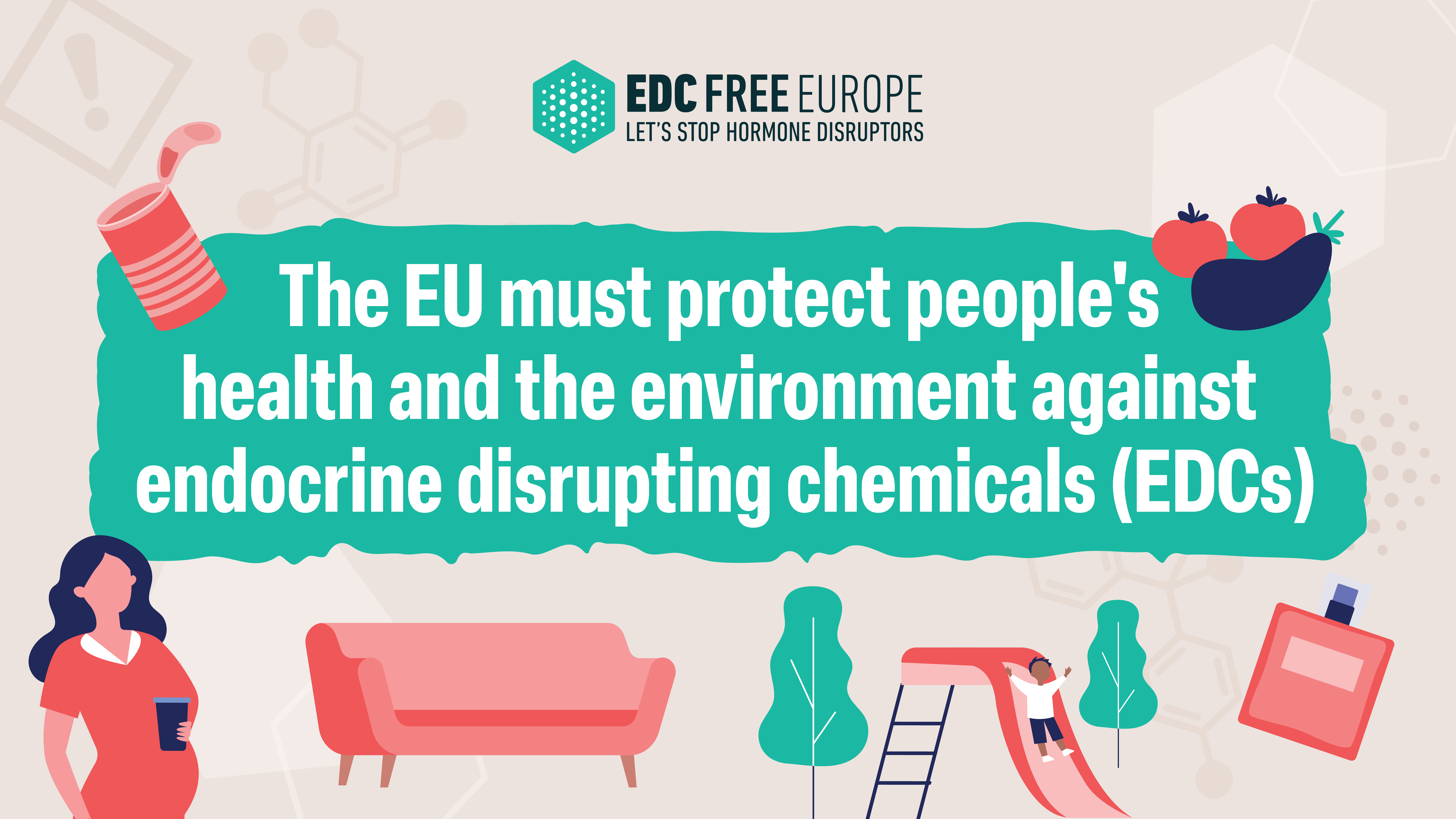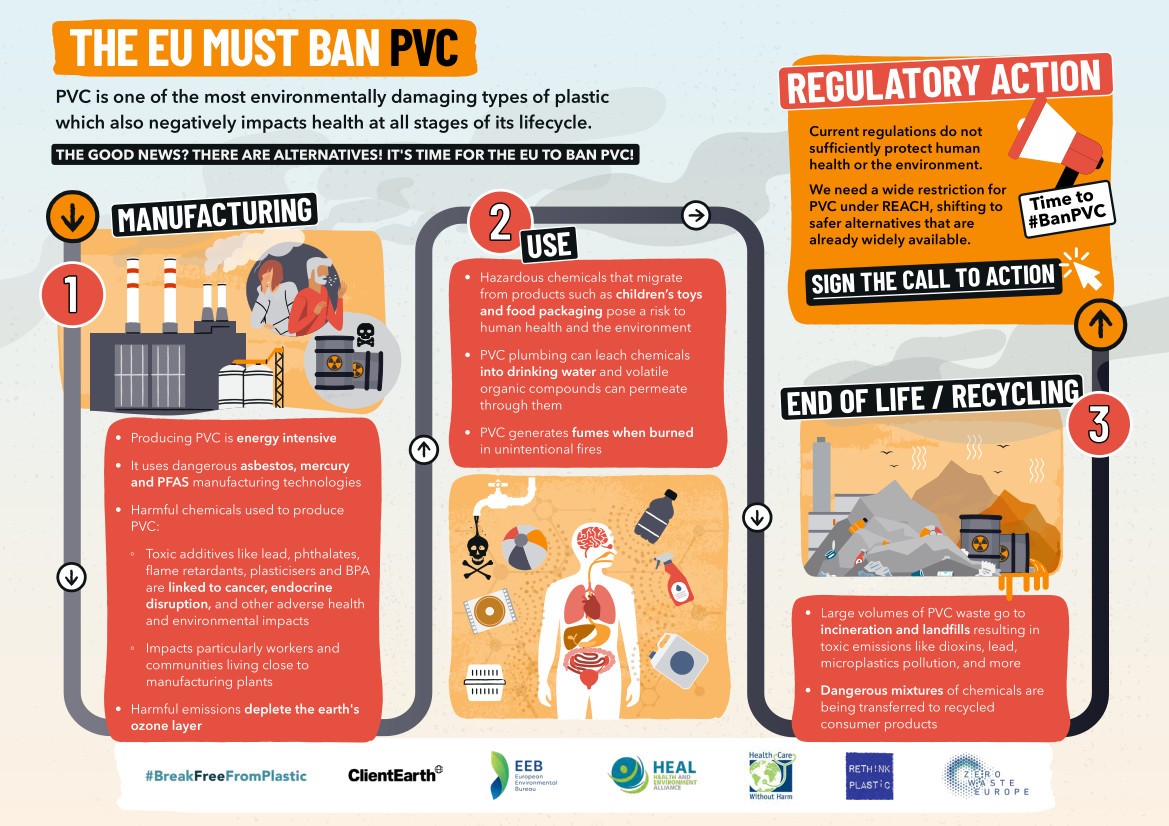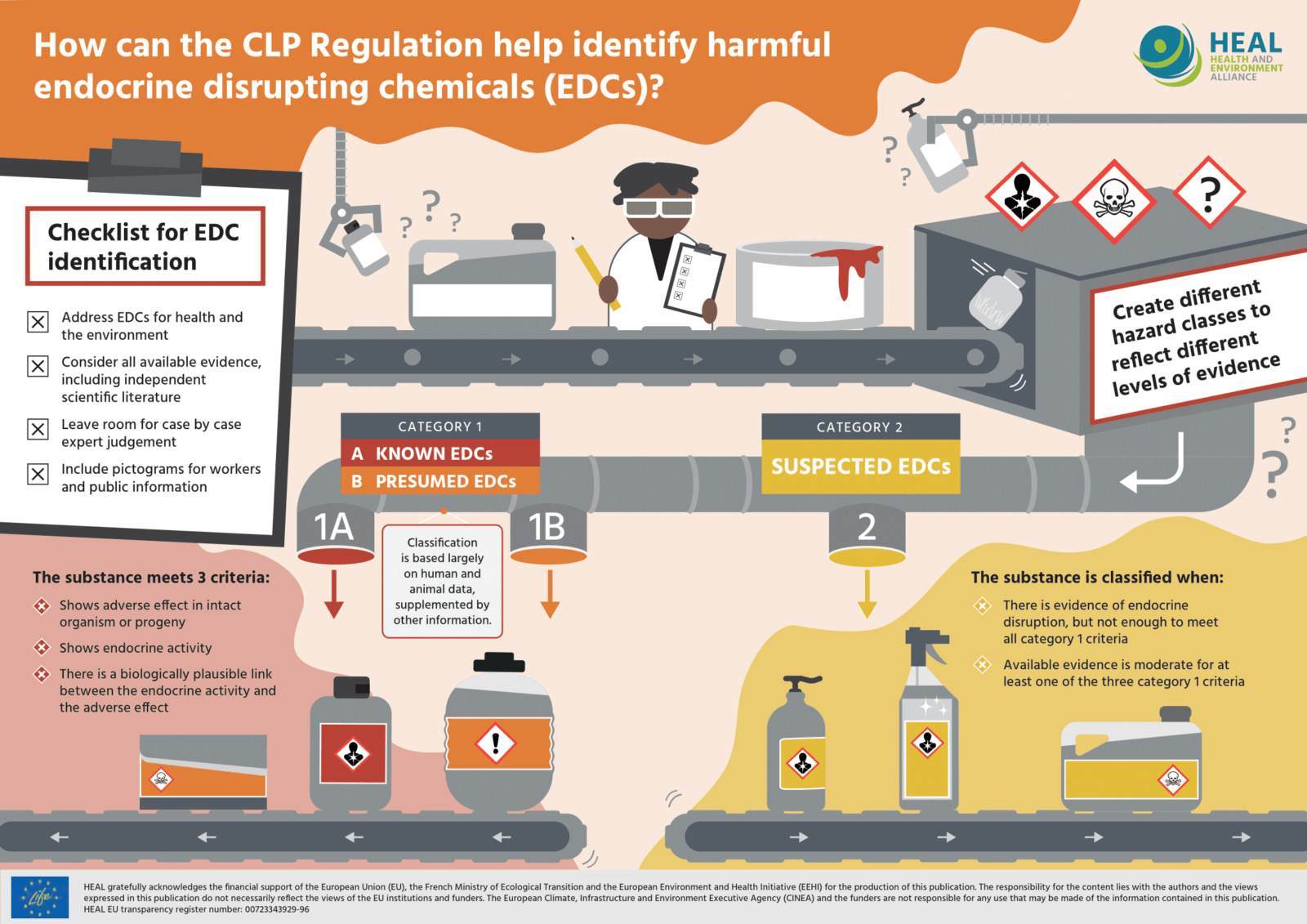The EDC-Free Europe coalition, of which HEAL is a member, has launched a new infographic illustrating the harmful impacts of exposure to known and suspected endocrine disruptors on our health and the environment.
How can EU decision makers ensure people, and the environment are not unwittingly exposed to substances that can literally take forever to break down and can have a myriad of negative effects on our health? Per- and polyfluoroalkyl substances (PFAS), a class of over 10 000 chemicals also known as “forever chemicals’ are taxing our health and economy. HEAL’s new infographic highlights key strengths and weaknesses in the proposed EU restriction on PFAS.
The scale of PFAS pollution triggered some countries in 2020 (Germany, Denmark, the Netherlands, Norway, and Sweden) to begin preparing a broad PFAS restriction which was presented in 2023. The European Chemicals Agency (ECHA) is currently (March 2024) working on assessing the massive number of comments the restriction proposal received from industry and organisations globally, including HEAL and its member organisations. The EU has already started moving the needle with restrictions on some groups within the PFAS family, like the 2024 ban of PFHxA in food packaging clothing,and other uses.
Communities suffering from heavy PFAS pollution are also taking action to make polluters accountable, and to obtain compensation as well as to cover health- and clean-up costs.
The EU-wide restriction proposal has an unprecedentedly large scope to allow a proper restriction of this large group of chemicals and their wide application – and to help avoid regrettable substitution. It also places the onus on industry to provide proof for any exemptions they might request for continued PFAS use. HEAL’s main demands to improve the restriction are to limit direct human exposure, set time limits, expand the scope and standardise reporting.
Download the infographic here.
The proposed restriction can be improved upon by ensuring exemptions are not granted for PFAS uses whereby people are directly exposed, e.g. in the case of materials in contact with food or drinking water. All exemptions should come with stringent time limits and reporting from industry on granted derogations should be made mandatory and standardised across all types. Pesticides and biocides containing PFAS should also be included in the restriction’s scope, as these chemicals are used on the food that ends up on our table.
We need an EU restriction now to shift the focus to the big challenge of how to stop the accumulation of PFAS chemicals every day in our bodies and the environment.
For more information explore the restriction process and timeline and delve into HEAL’s reaction on the proposed restriction.
Join HEAL and other organisations in calling for a toxic-free Europe, which entails a phase-out of PFAS among other actions. Sign the petition here.






